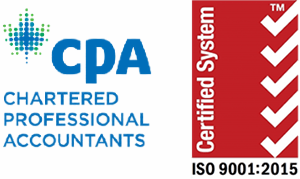IT professionals who have incorporated their business or who are contemplating doing so are well-advised to keep an eye on changes to our tax laws. Two relatively recent changes to the Income Tax Act (Canada) can potentially impact such incorporated IT professionals directly: the increase in the taxation of personal service businesses and the increase, effective January 1, 2014 in the taxation of non-eligible dividends. This article describes the issues and proposes some tax-planning solutions to consider with your accountant or financial advisor.
Personal Service Business
When an IT professional provides services through his or her corporation exclusively to one client there is a high risk that the Canada Revenue Agency will consider this arrangement to be a personal service business (“PSBs”). The tax consequences when that determination is made can be costly: loss of most business deductions otherwise available in a corporate context and a higher tax rate than what small businesses can use on active business income. The tax rate for PSBs is so high that one would be better off, from a tax perspective, receiving a salary from the client instead.
There are very few acceptable deductions that reduce the amount of corporate income subject to the high PSB tax rate: salaries (since it will be taxed at personal marginal tax brackets) and contributions to a pension plan or benefit plan. Since an incorporated IT professional can easily set up a personal pension plan through APCC, those caught by the PSB rules should visit read this more in-depth article at: (URL of the revised piece goes here, not INTEGRIS website).
Non-Eligible Dividends
With the fall in corporate tax rates across most Canadian provinces over the past decade, a tax savings opportunity has arisen for small business owners who pay themselves dividends for living expenses instead of collecting a salary. However, in the last 2014 federal budget, the Department of Finance expressed its intention to close this gap by increasing the taxation of non-eligible dividends, that is, dividends paid by private corporations who benefit from the lower corporate tax rate on active business income. This change in our tax regime means that individuals who stopped paying themselves T4 income (salary & bonus) in order to make use of this tax arbitrage opportunity now need to reconsider this strategy.. Firstly, when T4 income is set sufficiently low, the average tax payable by the IT professional is equal or lower than the total corporate and dividend tax paid – thus eliminating the arbitrage opportunity. Having some T4 income also enables the professional corporation to sponsor a personal pension plan for its owner. Since personal pension plans offer tax deductions that are not available in an RRSP (administration fees, terminal funding, buyback of past service, higher yearly tax-deductible contributions, etc.), an IT professional benefiting from one could dramatically reduce corporate taxation while building up a substantial, creditor-protected pension benefit. For ways to soften the blow of the new tax rates on non-eligible dividends, APCC members would be well-advised to read more at read this more in-depth article at: (URL of revised piece goes here, not INTEGRIS website).
If you are interested in more useful content like Personal Pension Plan, we encourage you to watch our interesting webinar hosted by our CEO Andrew Wall, and Jean Pierre Laporte, CEO of Integris and creator of the Personal Pension Plan here: https://www.youtube.com/watch?v=eudyTWLnHDI&t=1s







